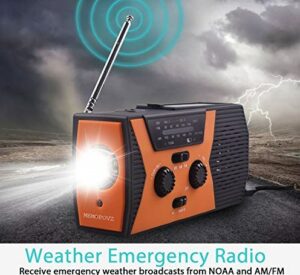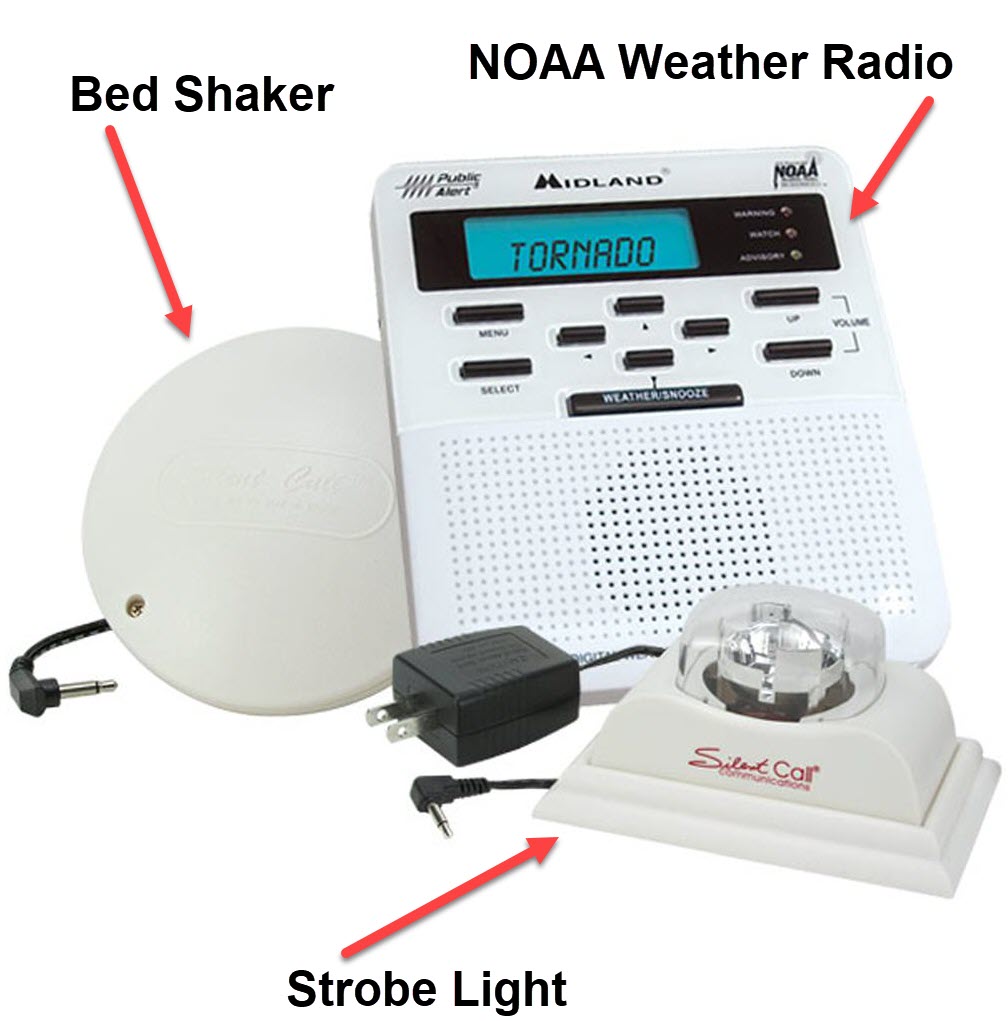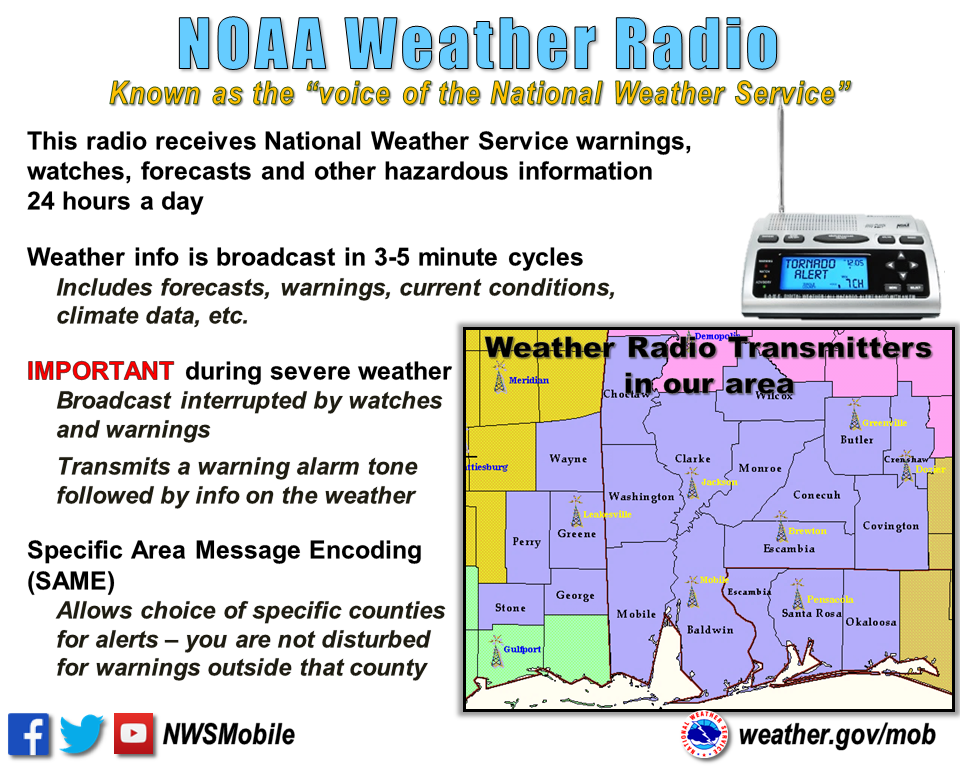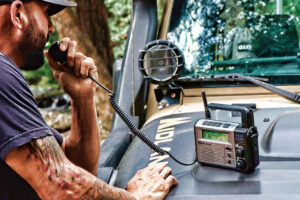17, Apr 2024
Understanding The Importance Of Weather Radio: A Comprehensive Guide
Understanding the Importance of Weather Radio: A Comprehensive Guide
Related Articles: Understanding the Importance of Weather Radio: A Comprehensive Guide
Introduction
In this auspicious occasion, we are delighted to delve into the intriguing topic related to Understanding the Importance of Weather Radio: A Comprehensive Guide. Let’s weave interesting information and offer fresh perspectives to the readers.
Table of Content
Understanding the Importance of Weather Radio: A Comprehensive Guide

Weather radio, often referred to as NOAA Weather Radio, plays a crucial role in providing timely and accurate weather information to the public. This vital service, operated by the National Oceanic and Atmospheric Administration (NOAA), utilizes a network of radio transmitters to broadcast warnings and advisories about severe weather events, such as hurricanes, tornadoes, floods, and winter storms.
This article delves into the intricacies of weather radio, exploring its functionality, importance, and benefits. We will also address frequently asked questions and offer practical tips for maximizing its effectiveness.
The Foundation of Weather Radio: Understanding its Functionality
Weather radio broadcasts utilize a dedicated band of frequencies, known as the Special Weather Information Reception and Transmission (SWIR) band, which operates on frequencies between 162.400 and 162.550 MHz. This band is specifically reserved for weather information, ensuring minimal interference from other radio signals.
The system relies on a network of transmitters strategically located across the United States. These transmitters broadcast weather information from the National Weather Service (NWS), which gathers data from various sources, including radar, satellites, and weather stations.
Types of Weather Radio Broadcasts
Weather radio broadcasts encompass a range of information, categorized into distinct types:
- Weather Warnings: These broadcasts alert the public about imminent severe weather events, such as tornadoes, hurricanes, flash floods, and winter storms. Warnings are issued when immediate action is necessary to protect life and property.
- Weather Advisories: Advisories inform the public about less severe weather events, such as strong winds, heavy rain, or hazardous road conditions. These advisories provide advance notice, allowing individuals to take necessary precautions.
- Weather Statements: Statements provide updates on current weather conditions and forecasts for the immediate future. These broadcasts offer a general overview of the weather situation.
- Special Weather Statements: These broadcasts convey specific information about localized weather events, such as dense fog, high winds, or severe thunderstorms.
The Importance of Weather Radio: A Lifesaver in Times of Crisis
Weather radio serves as a critical lifeline during severe weather events, providing vital information that can save lives and mitigate damage. Its importance stems from several key factors:
- Timeliness: Weather radio broadcasts information in real-time, allowing individuals to react quickly and take appropriate safety measures. This immediacy is crucial for responding to rapidly developing weather situations.
- Accessibility: Weather radio broadcasts are accessible to everyone with a basic radio receiver. This widespread availability ensures that information reaches a broad audience, regardless of their technological capabilities.
- Reliability: The NOAA Weather Radio system is designed for reliability, ensuring that broadcasts continue even during power outages. This resilience is critical during severe weather events, when other communication channels may be disrupted.
- Specificity: Weather radio broadcasts are tailored to specific geographic areas, providing localized information relevant to the listener’s location. This precision ensures that individuals receive the most pertinent weather warnings and advisories.
Benefits of Using Weather Radio
The benefits of using weather radio extend beyond immediate safety during severe weather events. Regular use of weather radio can:
- Increase awareness of weather hazards: By regularly listening to weather radio broadcasts, individuals can become more aware of potential weather threats in their area. This awareness can foster proactive safety measures and preparedness.
- Improve preparedness for severe weather: Weather radio broadcasts provide valuable information about preparing for severe weather events, including emergency supplies, evacuation plans, and safety precautions.
- Reduce the impact of weather events: Timely information provided by weather radio allows individuals to take appropriate actions to minimize the impact of weather events on their lives and property.
- Promote community safety: By sharing weather information with family, friends, and neighbors, individuals can help build a safer community during severe weather events.
Frequently Asked Questions about Weather Radio
Q: How can I receive weather radio broadcasts?
A: You can receive weather radio broadcasts using a dedicated weather radio receiver, a weather alert radio, or a smartphone app. Many newer car radios also include a weather radio receiver.
Q: What is the best way to find the correct weather radio frequency for my location?
A: The NOAA Weather Radio website provides a map showing the locations of transmitters and their corresponding frequencies. You can also find this information on the NWS website or by contacting your local NWS office.
Q: What should I do if I receive a weather warning?
A: When you receive a weather warning, take immediate action to protect yourself and your family. Seek shelter in a safe location, such as a basement or an interior room on the lowest floor of a building. Avoid windows and doors, and stay away from flood-prone areas.
Q: How can I stay updated on weather information outside of weather radio broadcasts?
A: In addition to weather radio, you can stay updated on weather information through the NWS website, mobile apps, local news outlets, and social media.
Tips for Maximizing the Effectiveness of Weather Radio
- Purchase a dedicated weather radio receiver: A dedicated receiver provides the best reception and features, including alerts and programmable frequencies.
- Program the correct frequency for your location: Ensure that your receiver is tuned to the correct frequency for your area.
- Keep your receiver powered and in a convenient location: Ensure that your receiver has fresh batteries and is easily accessible.
- Test your receiver regularly: Regularly test your receiver to ensure it is functioning correctly.
- Pay attention to all weather broadcasts: Even if you do not receive a warning, pay attention to all weather broadcasts for updates and information.
- Share weather information with others: Encourage friends, family, and neighbors to use weather radio and stay informed about weather conditions.
Conclusion: The Power of Informed Preparedness
Weather radio is an indispensable tool for staying informed about weather hazards and ensuring personal safety. Its ability to provide timely, accurate, and specific information empowers individuals to make informed decisions and take appropriate actions to mitigate the impact of severe weather events. By embracing weather radio as a vital resource, we can enhance our preparedness and build a safer and more resilient community.
/do0bihdskp9dy.cloudfront.net/01-29-2021/t_52a9d883e31e419898c59373f39b4fb3_name_file_1280x720_2000_v3_1_.jpg)







Closure
Thus, we hope this article has provided valuable insights into Understanding the Importance of Weather Radio: A Comprehensive Guide. We hope you find this article informative and beneficial. See you in our next article!
- 0
- By admin
